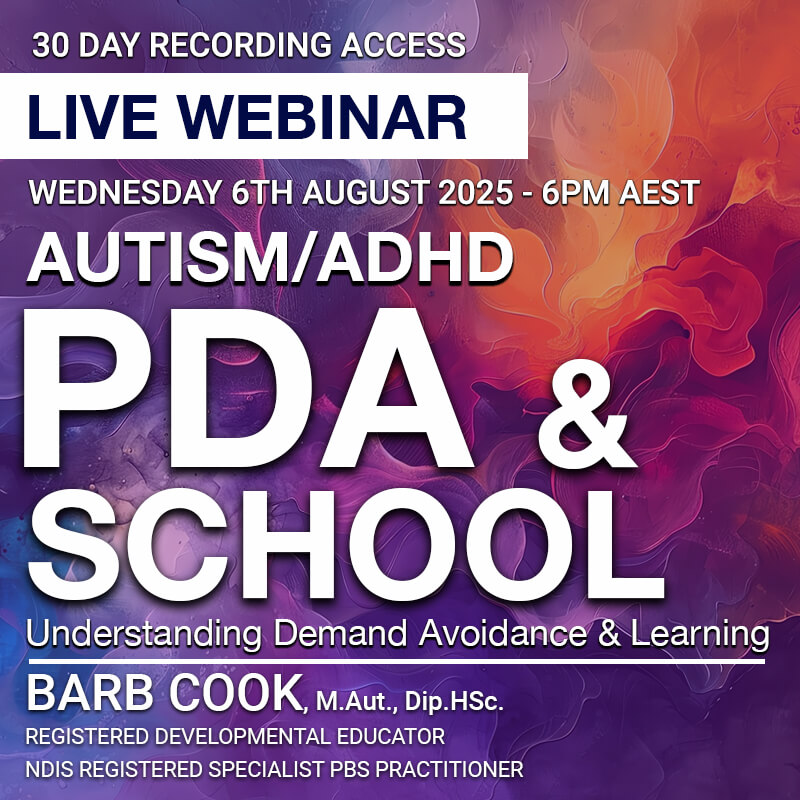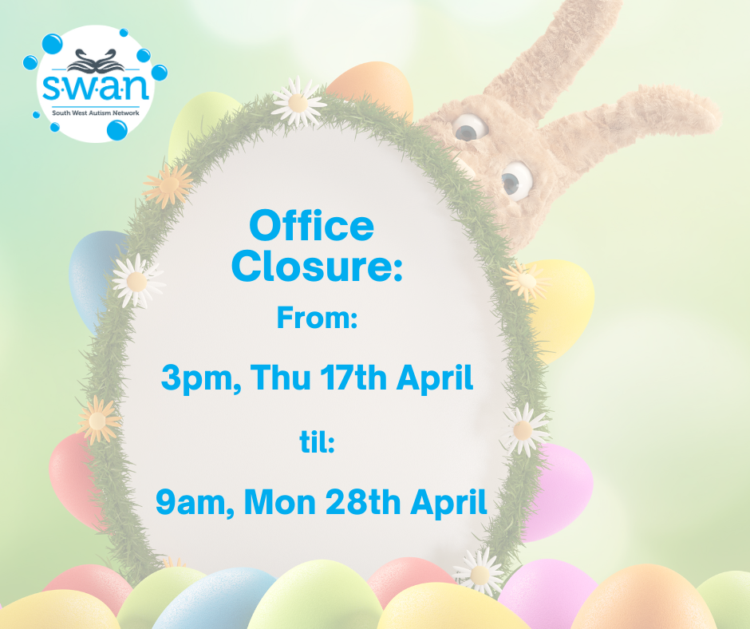
Autism/ADHD PDA & School Webinar (Online)
COST: $78.00
WHEN: Wednesday 6th August, 2025
START: 6pm – 8.30pm AEST (QLD)
DURATION: 2.5 hours (including Q & A)
WHERE: Online – Webinar link will be sent one (1) day prior to event start
On completion of this workshop, a certificate will be provided with 2.5 hours professional development
30 Day Access to recording of Event
Pathological Demand Avoidance (PDA) is a complex behavioural profile often associated with autism and autistic people with ADHD. Unlike typical anxiety responses, PDA manifests as an extreme avoidance of everyday demands and expectations.
Imagine living in a world where any form of demand—whether it’s getting dressed or completing homework—triggers an overwhelming need to resist. For individuals with PDA, this reality is all too common.
But what exactly does it mean? Why do certain demands feel so insurmountable? And how can we better understand and support those navigating life with Pathological Demand Avoidance?
Individuals with PDA may divert attention or create distractions to escape tasks they perceive as overwhelming. This behaviour isn’t simply defiance; it’s rooted in deep emotional experiences and sensory sensitivities.
In this webinar, Barb Cook, a neurodivergent presenter (autism, ADHD, dyslexia) and registered developmental educator, will explore the intricacies of PDA, its connection to emotions, and discuss effective learning and coping strategies for individuals with PDA, their loved ones, and for educators who work with PDA profile individuals.
Topics covered:
- What is pathological demand avoidance (PDA)
- PDA across the lifespan – children, teens, adults
- What causes intense and overwhelming emotions and behaviours
- Understanding the difficulty in controlling reactions
- The impact of communication from others
- Demand avoidance
- Demand overload
- Fight, flight, freeze, fawn response
- The added complexity of rejection sensitive dysphoria (RSD)
- Relationship between anxiety and control
- Dynamics of PDA in relationships, friendships and family
- PDA in school and learning environments
- Internalisation of demands and overwhelm
- Task avoidance and procrastination
- Reframing communication
- PDA and sensory overwhelm in the classroom
- Understanding triggers
- Interoception and identifying emotional overwhelm
- Strategies to reduce PDA induced overwhelm and stress
- Managing intense feelings
- The importance of health and wellbeing
- Benefits of proprioceptive activities and weight-bearing exercise
- Taking care of yourself and others
This webinar will provide practical tools, tips and strategies for teachers, parents, carers, PDA individuals, allied health professionals, and support workers.


